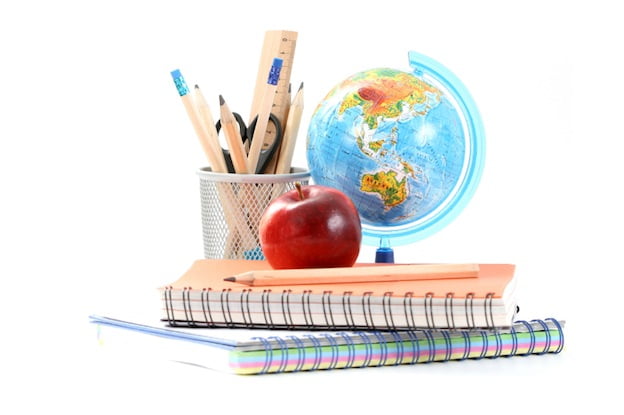SingaporeMotherhood | Preschooler & Up
November 2013
Primary 1 Survival Skills

In just a matter of weeks, six-year-olds island-wide will be making the transition from kindergarten to Primary school. In place of the hand-holding guidance which they had received in pre-school, they will be granted more autonomy and expected to be more independent. We speak to some parents and educators to find out what non-academic skills your child needs to develop in order to survive and thrive in Primary school.
[banner][/banner]
A Good Sense Of Time
A typical day in primary school is divided into periods for various subjects and activities. In order to complete his allocated tasks by the end of each period, your child needs to be able to tell the time, and to have a realistic estimate of what can be done in a given amount of time. For example, he will need to know what time recess ends, and how to allocate time to queue up for food, eat, use the toilet and play.
A pre-schooler who has just been introduced to the concept of time may not be able to gauge the passing of time accurately. To him, “10 minutes” or “one hour” may both seem like “a long time”. To help your child to develop a sense of time, Ms Elsie Tan, principal of Living Sanctuary Kindergarten, suggests giving ‘verbal cues’ as you go through your daily activities with him. For instance, she may tell her students “10 more minutes, then we have to pack up and go to the music room.”
Being Financially Savvy
Your child will need to know how to buy his own food from the canteen and to receive the right amount of change. Mrs S. Wee, who works in the Real Estate industry, is a mother of four children aged 12, 10, six and four. She teaches her children by giving them small change to practise buying things from a shop or by role playing at home.
Armed with a wallet full of coins for the first time, your child may not be able to resist the temptation to splurge at the school bookshop, or the lure of junk food and fizzy drinks from the school canteen. To help your child spend his money wisely, teach him to compare two items of the same price and evaluate which is more worth spending his money on. For instance, you can ask him whether it is a better use of money to buy yet another eraser which he does not need, or to buy food to keep him full until he comes home from school.
Being Attentive
Mrs Wee notes that there will be a large increase in the class size, from sixteen to 20 pupils in kindergarten to 30 or more students in Primary One. Hence, it is important for the child to be able to listen to the teacher and stay focused as the teacher would not be able to give every child personalised attention.
To train your child’s listening and communicating skills, Emma Hall, an ex-teacher, shares in the book Getting Ready To Start School, “Mealtimes are a really good occasion to model good listening. Ask your child to tell you about something that she’s enjoyed during the day and encourage her to listen to you and the rest of the family.” The stay-home mother-of-two adds, “You could ask questions to help her extend her descriptions and to show her that you have enjoyed hearing her speak.”
To reinforce good behaviour, Ms Tan suggests praising your child when she behaves well, as this will motivate her to continue her efforts. For instance, you may praise her for sitting through a family conversation without interrupting, or for paying attention while you read to her.
Being Organised
Unlike pre-school, where teachers help students to file worksheets, your child now has to independently organise worksheets for various subjects. To reduce the chances of her children losing worksheets or forgetting their homework, Mrs Wee gives them a plastic file with pockets to organise the worksheets from various subjects. She would also check their bags daily for homework.
Dealing With Conflict
When interacting with other children, your child may be on the receiving end of rough or aggressive behaviour. While one’s natural tendency may be to retaliate, Mr A. Chung, a father-of-two, advises his six-year-old son to exercise restraint.
“I always tell him to ‘do to others what you want others to do to you’. If someone hits you and you hit him back, then you are also in the wrong, and the teacher will punish both of you,” he explains. Therefore, he advises his son to inform his teacher immediately if someone has treated him roughly.
Taking Care Of Belongings
Children can be rather absent-minded at this age, and they may lose their wallets, water-
bottles and other belongings in school. Mr Chung helps his son to develop a habit of ensuring that all his belongings are with him by periodically reminding him to check. If anything is missing, he encourages his son to recall the last place where he had left it.
Changing Into PE Attire
Some schools allow students to wear their attire for Physical Education (PE) throughout the day. However, if your child’s school requires him to change in and out of his PE uniform, let him practice doing this before he enters Primary One. This gives him confidence in handling the zips, buckles and buttons on his school uniform. You may also want to teach him how to fold up his uniform and pack it neatly into his school bag.
Developing Good Personal Hygiene
Unlike pre-school, where teachers ensure that the children wash their hands before meals, there will be no reminders for your child in Primary One. It is thus important to help your child to form the habit of washing his hands after using the toilet and before eating.
Taking Responsibility For Learning
When your child enters Primary One, he embarks on a long journey of formal education. If he can take ownership and responsibility for his studies, he will be motivated to do his best. To help his son understand his responsibilities as a student, Mr Chung explains the responsibilities of each family member to him. He tells his son that “your responsibility at this age is to eat, sleep, play and study, just as my responsibility is to take care of the family.”
Rather than to put undue pressure on his children to perform academically, Mr Chung prefers to focus on character development. “I tell them that I am satisfied as long as they have tried their best at school,” he shares. “I believe that when you build character first, academic results will follow.” He has not been disappointed, as his daughter, now in Primary Four, came in third in class last year.
All content from this article, including images, cannot be reproduced without credits or written permission from SingaporeMotherhood.
Follow us on Facebook, Instagram, and Telegram for the latest article and promotion updates.






